A Look at Transforming
Tomorrow: The Campaign
for Georgia Tech
In 2022, Georgia Tech publicly launched Transforming Tomorrow: The Campaign for Georgia Tech, the most ambitious fundraising effort in Institute history. Thanks to the generosity of alumni, friends, corporations, and foundations, the comprehensive campaign is well on its way to securing the resources necessary for Georgia Tech to increase access, advance innovative ideas, expand opportunities for learning, and empower our community and our world. With four years remaining in the campaign, the Institute is over halfway to its goal — with nearly 50% of all campaign donors making their first gift to Georgia Tech.
A principal theme of the campaign is transforming lives by increasing access to a Georgia Tech education through the availability of need-based scholarships. Tech — one of the nation’s fastest-growing public universities and one of the world’s foremost research institutions — remains dedicated to expanding access to students of diverse socioeconomic backgrounds, recognizing that maintaining its position as a top-tier university solving the world’s most complex challenges depends on the ability to extend opportunity to the very best students, regardless of their financial circumstances.
“As a leading public university, we are committed to making sure all talented students have a chance,” says Georgia Tech President Ángel Cabrera. “When we get it right, we act as an engine of social mobility, have a multigenerational impact on entire families, and create value for everyone. That’s why we have made the main goal of our more than $2 billion Transforming Tomorrow campaign to raise money for need-based scholarships.”
And with the current enrollment landscape in higher education leading to increased competition, scholarships matter more than ever. While Georgia Tech has been recognized by The Princeton Review as the best value public university, the cost of higher education across the country remains steep. Therefore, to continue transforming the lives of talented and deserving students, Georgia Tech must increase the resources available to expand access to the brightest students from all backgrounds. This is why Rick Clark, assistant vice provost and executive director of Undergraduate Admission, says, “Supporting need-based scholarships through the Transforming Tomorrow campaign is critical. We do not want to be a school only for the rich but, indeed, for the best students, regardless of their family’s economic status. I believe this is core to our mission as a public university — and critical if we are truly going to solve the world’s problems in the future.”
Advancing the Tech Tradition
But Georgia Tech does have a long tradition of providing access to financially disadvantaged students, beginning first with low tuition and fees, coupled with scholarships, student loans, and the nation’s largest voluntary co-op program. Because of such programs, Tech has opened the doors of opportunity for many students, including first-generation college graduates. In fact, the generosity of our alumni and the leadership of the Foundation have played vital roles on this front.
The G. Wayne Clough Georgia Tech Promise Program, the Godbold Family Foundation Scholarship Program, and the recently established Georgia Tech Val-Sal Scholarship Program are some of the need-based scholarship programs currently available to Tech students.
Since its inception in 2007, the G. Wayne Clough Georgia Tech Promise Program, the first of its kind offered by a public university in Georgia, has provided a debt-free degree to qualifying students from low-income Georgia families, filling a gap in the financial aid support system by picking up where other scholarships and financial aid options leave off, covering a student’s full cost of attendance.
The Godbold Family Foundation Scholarship Program is another need-based award that covers 100% of qualified students’ financial need at Tech. The guiding principle of the Godbold Scholarship is to provide economic access to out-of-state students (from Florida, South Carolina, Tennessee, and Texas) while rewarding academic achievement.
The Georgia Tech Val-Sal Scholarship, made possible by an institutional investment using Tech’s unrestricted funds, enables Georgia Tech to expand its commitment to academic excellence and access for Georgia students. It offers financial support for valedictorians and salutatorians from high schools across the state who would otherwise struggle to afford a college education.
Fueling Tomorrow Today
To add to the Institute’s financial assistance resources, the Transforming Tomorrow campaign seeks to expand the Institute’s need-based scholarship programs, given that scholarships are necessary to attract highly qualified and deserving students.
“The students who are eligible for need-based scholarships at Tech demonstrate the resourcefulness, intelligence, and perseverance valued by the Institute. They are precisely the kinds of students we want to have,” says Georgia Tech Foundation President Al Trujillo. “They then go on to be courted by prestigious companies and organizations upon graduation, securing high-paying and rewarding positions that transform not only their own lives but that of their families. So, the impact of philanthropic gifts around need-based scholarships is immediate and measurable, with donors seeing — in less than five years — the dramatic impact they have had on an individual and a family.”
But while the generosity of donors up to this point has strongly positioned Tech to deliver on its mission of developing leaders who advance technology and improve the human condition, ongoing resources are key to enabling the Institute to continue doing so.
“Private philanthropy is the fuel for tomorrow,” says Tech’s Vice President for Development Jen Howe. “Transforming tomorrow requires investment today. It is our obligation to carry Tech’s history of affordability and expanding access into our future.” Falling short in this area, she cautions, could jeopardize “Tech’s long-held identity as a fabric woven of different perspectives and backgrounds that has driven the Institute’s ability to innovate, grow, and seize opportunities.”
